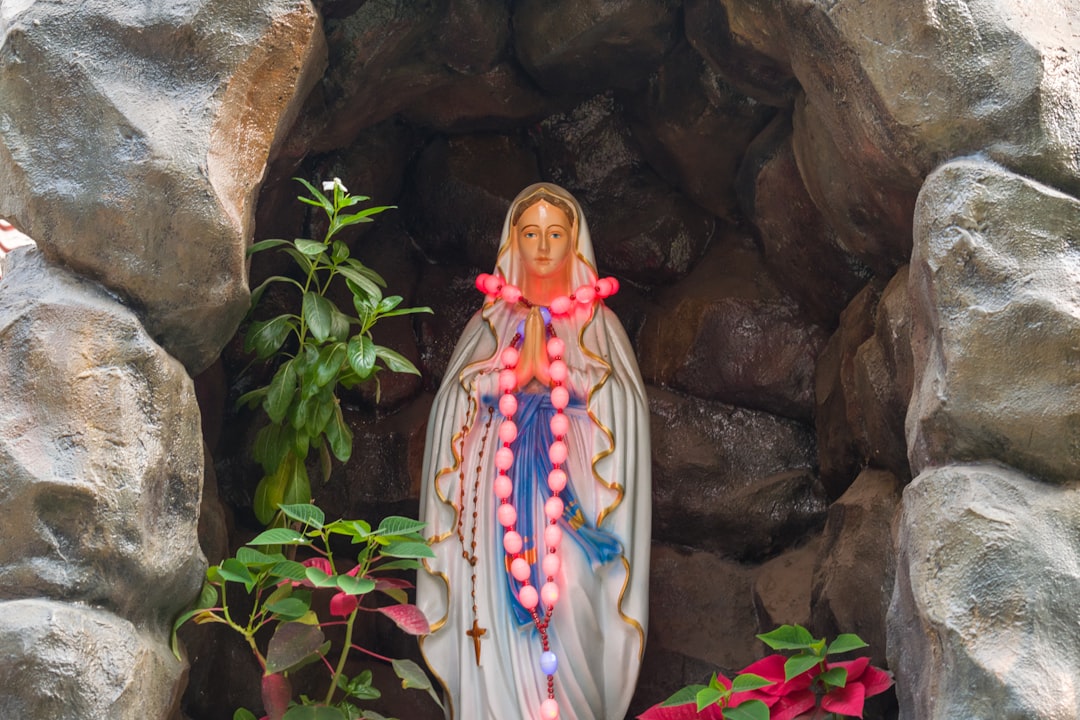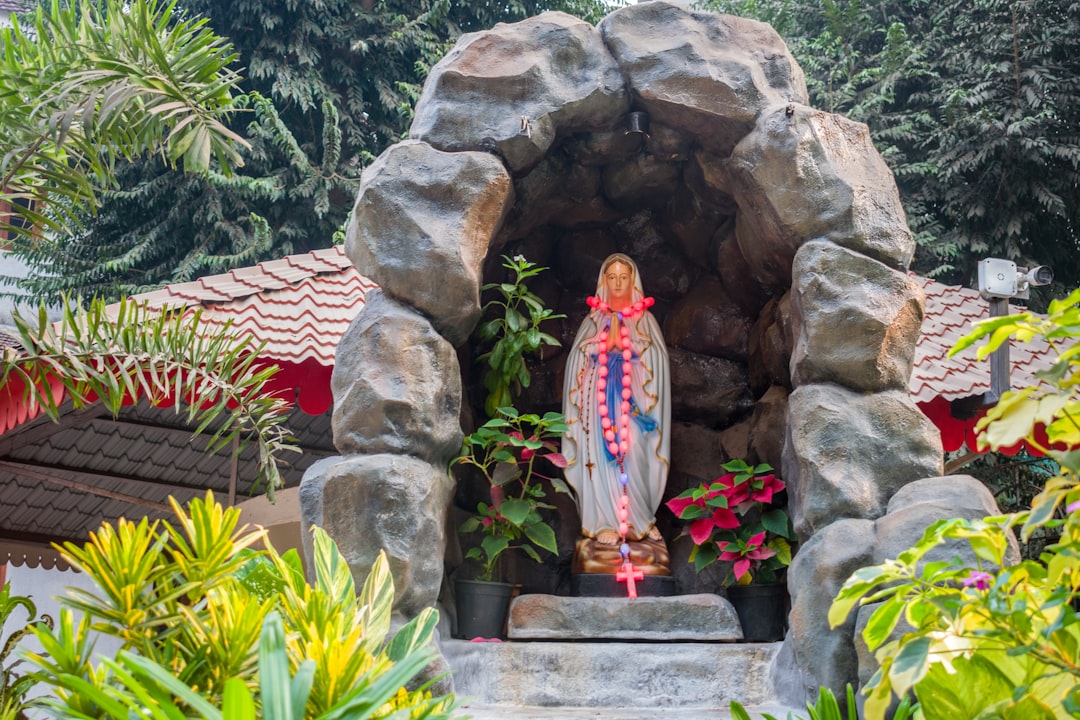Living to be almost 1,000 years old may seem like pure fantasy to us, but in the biblical account, it was a reality for Methuselah. As one of the most intriguing figures in the Old Testament, he has inspired countless discussions and debates throughout history. In this post, we’ll explore the significance and mystery surrounding Methuselah, as well as his role in Jewish and Christian traditions. Read on to unravel the mysteries of this intriguing biblical figure.
Methuselah in the Bible

Methuselah is a very intriguing biblical figure who has raised important questions about the longevity of humans, the meaning of his age, and his significance in biblical history. Here are some key points to consider when exploring Methuselah in the Bible:
- Methuselah was mentioned in the Old Testament as the oldest person ever recorded, living up to 969 years old. He was the son of Enoch, the father of Lamech, and the grandfather of Noah. Methuselah was also a patriarch of a genealogy that included some of the most important figures in the Bible, such as Adam, Jared, and Noah.
- The significance of Methuselah’s age has been debated by scholars, but some theories suggest that his lifespan represented the gradual decline of humanity after Adam and Eve’s expulsion from the Garden of Eden. Others argue that Methuselah’s longevity record was a symbolic way of representing divine favor or a sign of God’s impending judgment upon the earth.
- The doomed world of Methuselah was one that was marred by sin, corruption, and violence. According to the Bible, Methuselah lived in a time when the wickedness of mankind was unbearable, leading to God’s decision to flood the earth and spare only Noah and his family. Methuselah’s death was said to have occurred shortly before the flood, making him one of the last representatives of the old world.
- Methuselah’s significance is not only rooted in the Bible but also in Jewish tradition and Christian interpretation. In the Jewish tradition, Methuselah is believed to have been a righteous man who walked with God and offered protection to Noah and the ark during their voyage. He was also considered an antediluvian sage who preserved knowledge and wisdom for future generations. In Christian interpretation, Methuselah was often seen as a foreshadowing of Christ, whose long-awaited arrival was expected to bring salvation and renewal to a world that was corrupted by sin.
- The legacy of Methuselah is a complicated one that has generated much speculation and interpretation over the years. Some scholars view Methuselah as a symbolic figure who represented the ancient times and the longevity of human existence, while others see him as a historical figure who lived a remarkably long life. Regardless of how Methuselah is perceived, his story raises important questions about the history of humanity, the nature of God, and the mysteries of life and death.
In summary, Methuselah is a fascinating biblical figure who continues to captivate the imagination and inspire curiosity among scholars and believers alike. His story sheds light on the complexities and challenges of the human experience and reminds us of the power of faith, hope, and the quest for knowledge.

The Significance of Methuselah’s Age
Methuselah is an iconic biblical figure renowned for his unusual lifespan. According to the Old Testament, Methuselah was the oldest person to ever live, having spent 969 years on earth. His age has sparked numerous conversations and disputes about the longevity of people in ancient times. One of the primary reasons why Methuselah’s age is significant is the role it plays in biblical history.
Methuselah was a part of a chain of patriarchs in the book of Genesis, whose lives spanned a combined 1,656 years. He was the son of Enoch, the father of Lamech, and the grandfather of Noah. His extraordinary age makes him a prominent member of the family tree of Adam.
Moreover, Methuselah’s longevity record was particularly significant because of the age he attained. It was during a time in the Bible referred to as the Antediluvian, which means “before the deluge.” This was when the earth was populated by people who all descended from the first man, Adam, to Noah and his family members. Methuselah lived until just before the flood (due to his death in the same year the flood arrived, according to Genesis 5), which wiped out all life on earth except those saved on the ark.
It’s the story of the flood that, in turn, adds significance to Methuselah’s age. According to Jewish tradition, Methuselah was among the many who had warning of the flood’s approach and therefore knew the judgment that was coming for the earth’s wickedness. While he isn’t mentioned as having specifically prophesied about the flood or preached righteousness, some speculate that, as the oldest person ever to live, he must have been seen as a wise and respected figure or even a prophet (like his great-grandfather Enoch), lending credibility to the impending disaster.
In conclusion, Methuselah’s age in the Bible is significant because of its connection to the genealogy of Adam’s family tree, his status as the oldest person to ever live, and his relationship to the people who lived through the flood, either in fact or in Jewish tradition. It’s important for Christians to study biblical figures such as Methuselah because doing so enriches our faith and understanding of God’s interaction in history.
The Doomed World of Methuselah
As the oldest person on record in the Bible, Methuselah’s longevity has fascinated readers for centuries. However, his age is not the only thing that stands out about him. Methuselah lived in a world that was doomed to be destroyed by a massive flood, an event that would wipe out all of humanity save for Noah and his family.
The book of Genesis tells us that Methuselah was the son of Enoch and the father of Lamech. He was also the grandfather of Noah, the man chosen by God to build the ark and preserve the animal kingdom and human race.
It’s worth noting that Methuselah was not the only person with an impressive lifespan in his family tree. His father Enoch and his son Lamech both lived well into their hundreds, with Enoch being taken up to heaven by God at the age of 365. Methuselah’s grandfather Jared also lived for an incredibly long time, reaching the age of 962.
So why did Methuselah and his family live for so long? Many people have speculated and offered various interpretations, but ultimately, the Bible does not tell us the exact reason. Some have suggested that the antediluvian (pre-flood) world was vastly different from the post-flood world we know today, with a more favorable environment for human longevity.

But despite their long lives, Methuselah and his family were not immune to the effects of sin and the brokenness of the world. In fact, the Bible describes the world at this time as incredibly wicked, with violence and corruption everywhere. Methuselah lived to see the worst of it, witnessing the decline of humanity and the destruction that would come.
As we read about Methuselah and his world, we are reminded of the consequences of sin and the importance of living a life pleasing to God. While we may not live for hundreds of years like Methuselah and his family, we do have the opportunity to make a difference in our world and leave a legacy that honors God.
Significance of Methuselah’s Age:
- Methuselah is the oldest person on record in the Bible, reaching the age of 969.
- He lived in a world that was doomed to be destroyed by a massive flood.
- Methuselah’s family tree featured several other individuals with impressive lifespans.
- The Bible describes the pre-flood world as incredibly wicked, with violence and corruption everywhere.
- Methuselah witnessed the decline of humanity and the destruction that would come.
- Methuselah’s longevity serves as a reminder of the consequences of sin and the importance of living a life pleasing to God.
Methuselah in Jewish Tradition
Methuselah features prominently in Jewish tradition as one of the most interesting figures in the Old Testament of the Bible. As the oldest person ever to have lived, he has acquired an almost mythical status among scholars and religious figures, inspiring countless interpretations and stories over the centuries. Here’s a look at some of the key aspects of Methuselah’s role in Jewish tradition.
First and foremost, Methuselah is remembered for his incredible lifespan, which spanned an impressive 969 years, according to the book of Genesis. He was the son of Enoch, the grandfather of Noah, and the father of Lamech, and his remarkable longevity is often seen as a symbol of the great age of humanity in the earliest stages of biblical history. Indeed, Methuselah’s name itself is thought to mean “man of the dart” or “man of the missile,” suggesting that he was renowned for his speed and power in his earlier life.
Beyond his age, Methuselah is also an important figure in Jewish genealogy and family trees, occupying a central place in the long line of patriarchs who precede the flood. He is the son of Enoch, one of the most mysterious characters in the Bible, and the father of Lamech, who was the father of Noah. His place in this chain of ancestors is significant because it connects him to the earliest days of human history, offering a glimpse of a bygone era that has long since passed.
« Sparrow Secrets Unveiled: Discover Their Stunning Biblical Meaning
Uncovering the Story of Jael: A Courageous and Resourceful Biblical Heroine »
Despite the fact that Methuselah is relatively unknown outside of Jewish religious circles, his legacy lives on in countless ways. In particular, his long lifespan has inspired a variety of legends and stories over the years, ranging from tales of his great wisdom and knowledge to accounts of his many adventures and exploits over the centuries. In addition, he has given rise to an entire industry of merchandise and memorabilia, including Methuselah trees, which are known for their incredible longevity and durability.
Overall, Methuselah remains an enigmatic and intriguing figure in the history of the Bible, inspiring countless interpretations and speculations among scholars and laypeople alike. Whether he is remembered for his age, his genealogical importance, or his role in the pre-flood world, his legacy lives on and continues to inspire people of all ages and backgrounds today.
Methuselah in Christian Interpretation
In Christianity, Methuselah is primarily interpreted as a symbolic representation of the lifespan of humanity. He is known as the oldest person to have ever lived, according to the Old Testament. Methuselah lived for an astonishing 969 years, which is quite a feat considering the average lifespan in ancient times was around 30-40 years.
-
Methuselah as a Symbol of Longevity:
As the patriarch of his family tree, he is regarded as one of the Antediluvian patriarchs who lived the longest before the Great Flood in the history of humanity. Though there is little information about him in the Bible, Methuselah’s longevity has been interpreted as a symbol of the prolonged duration of the lifespan and deterioration of humanity. -
Methuselah as a Warning:
Moreover, Methuselah’s age has also been interpreted as a warning to the disobedient race of humans. This interpretation is based on the assumption that God had given humanity enough time to repent and change their ways before the impending judgment. Methuselah’s death finally marked the end of a time of grace and the beginning of the catastrophic flood. -
Portrayal of Methuselah’s Character:
Some Bible commentators believe Methuselah to be a righteous man, having exceptional faith and obedience to God. In contrast, others believe that he lived in wickedness and was not an instrument of God’s grace, which again interprets the long period of his life as a warning sign. -
Methuselah’s Role in Biblical Legacy:
Regardless of these diverse interpretations, Methuselah’s figure has secured a firm place as an iconic epitome of a Biblical patriarch. He is often referenced in sermons and Biblical literature about faith, family, and longevity. Methuselah’s age has scored him a vital position in Biblical history and provides insight into ancient times’ perspective on human life. -
Methuselah’s Name:
Finally, the name ‘Methuselah’ comes from the Hebrew word ‘muth’, which means “his death shall bring”. Another interpretation is that it comes from the word ‘math’, which means “man” and ‘shelah’, which means “spear” or “weapon”. This suggests that Methuselah was possibly an influential figure during his time, adding another fascinating layer to his character.

In conclusion, Methuselah’s character in Christian interpretation is multi-dimensional, with room for individual beliefs and varying standpoints. His longevity, character, and name have made him a compelling figure to ponder, reflecting the significance of history and the depth of faith.
The Legacy of Methuselah
Methuselah’s life has left a significant legacy that continues to be remembered in various ways. From his age to his father and son, Methuselah remains a biblical figure that raises many questions and furthers understanding of biblical history.
Methuselah is most known for his longevity and obtaining the title of the oldest person recorded in history. His lifespan of 969 years is exceptional, and it has led to much speculation about his genealogy. Many believe that Methuselah was a direct descendant of Adam, who lived for 930 years, which would reveal something about his complex family tree.
Methuselah also held an important place in the antediluvian genealogy, as his father, Enoch, was the man who “walked with God” and then “was not, for God took him.” Later in Methuselah’s life, his son, Lamech, was the father of Noah, who would eventually lead his family and many animals to safety during the great flood.
This significance has led to Methuselah being regarded as a patriarch, a figurehead in the history of humanity. His life span has led people to wonder if there was a higher purpose to his longevity, which has been interpreted in many different ways.

In some Jewish traditions, Methuselah is known for three things: discipline, penitence, and charity. Many regard these characteristics as essential traits of a righteous man and a role model to follow. In Christianity, Methuselah is seen as part of the biblical genealogy that leads to the birth of Jesus Christ centuries later. Some even speculate that Methuselah may have been alive when Adam died, which would indicate an unbroken chain of family history.
There are different interpretations about the legacy that Methuselah left, but one thing that is clear is that his life has been a subject of mystery and fascination for generations. Methuselah’s extraordinary lifespan and his place in the antediluvian genealogy have inspired many to ponder the significance of his life and the purpose that God saw in his longevity.
In conclusion, Methuselah was a significant biblical figure whose life spanned nine centuries. He is remembered for his impressive age, his father, Enoch, and his son, Lamech, who fathered Noah. His life has been interpreted in different ways, but it is clear that Methuselah’s legacy has remained an integral part of biblical history to this day.












